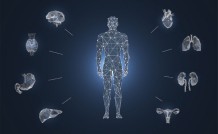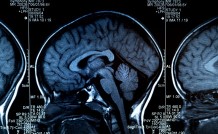Online Class: Introduction to Medical Billing

no certificate
with CEU Certificate*
-
10Lessons
-
19Exams &
Assignments -
8,947Students
have taken this course -
17Hours
average time -
1.7CEUs
Course Description
Mastering Medical Billing: Your Pathway to a Rewarding Healthcare Career
The healthcare industry is a vast, dynamic, and essential sector, with myriad specialties and vocations. Among these, medical billing stands out as a critical cog in the medical machinery. As the healthcare sector continues to expand, the role of a proficient medical biller becomes increasingly indispensable.
Why Medical Billing?
In our interconnected world, where patient care seamlessly merges with technological advancements, the medical biller emerges as a bridge between healthcare providers and insurance companies. They play a quintessential role in ensuring the financial health of medical establishments. From processing insurance claims to adhering to ever-evolving healthcare policies, a medical biller's responsibilities are both diverse and integral. The demand for skilled medical billers has surged in recent years. Hospitals, clinics, and private practices rely heavily on adept billers to streamline their operations and maintain fiscal health.
What Will You Learn?
This comprehensive, self-paced course is meticulously crafted to arm you with the essential skills required to excel in medical billing. It's structured to suit both novices and those looking to brush up on their skills. Designed in accessible language, this course promises a deep dive into the intricate world of medical billing.
-
Overview of the Healthcare System & Career Opportunities in Medical Billing (Lesson 1): Gain insights into the healthcare system's landscape and the exciting career paths open to medical billers.
-
Medical Biller Job Description (Lesson 2): Delve into the specifics of what a medical biller does, understanding the nuances and intricacies of the role.
-
Analyzing Provider and Patient Information (Lesson 3): Learn the art of dissecting critical data, ensuring accurate billing and top-notch patient care.
-
ICD-10-CM - What is it? (Lesson 4): Get acquainted with the International Classification of Diseases, Tenth Edition, Clinical Modification - an essential tool for medical billing.
-
Analyzing the Hospital Billing Process (Lesson 5): A deep dive into the billing process of hospitals, understanding the differences and nuances from other medical establishments.
-
Analyzing the Physician Billing Process (Lesson 6): Gain a comprehensive view of how billing works specifically for physicians, unraveling the unique challenges and solutions.
-
Exploring Different Types of Health Insurance (Lesson 7): Understand the diverse insurance types, ensuring effective communication with insurance providers.
-
Medicare Overview (Lesson 8): Discover the workings of Medicare, one of the most significant health insurance programs.
-
Reimbursement & Legal Issues (Lesson 9): Navigate the legal framework surrounding medical billing and understand the pivotal role of reimbursements.
-
Medical Billing & Coding Certifications Information (Lesson 10): Explore the various certifications available, understanding their relevance and the advantages they bring to your career.
Why Choose This Course?
For those aspiring to make a mark in the healthcare administration domain, this course serves as a beacon. You will not only learn the technical aspects of medical billing but also cultivate a holistic understanding of its role in the broader healthcare spectrum. By the course's end, you'll be poised to seamlessly integrate into any medical establishment, wielding the dual weapons of knowledge and confidence.
In conclusion, if you're seeking a career that blends the gratification of being part of the healthcare industry with the satisfaction of a meticulous administrative role, medical billing is your answer. And this course, with its extensive curriculum and practical insights, is the perfect springboard to launch you into this rewarding profession.
Course Motivation
Education & Training
In addition to private offices and hospitals, additional healthcare establishments include: outpatient care centers, medical diagnostic laboratories, ambulatory service areas and nursing residential care facilities.
Healthcare Employment Outlook
Due to high job turnover, job opportunities within the healthcare industry are incredibly favorable. This is due to the large number of healthcare personnel anticipated to retire, as well as the stricter enforcement of immigration laws preventing foreign healthcare workers from entering the United States.
As indicated by economic determinants, wages and salary pay rates within the healthcare industry are projected to increase 27 percent through 2018. This is nearly double the rate of increase (14 percent on average) for all of the other industries.
Expanding the workforce, employment growth within the healthcare sector is expected to bring about more than 3.6 million new wage and salary jobs (this is 19 percent of all the wage and salary jobs being added to the economy during the course of the coming decade).
Medical Billers on the Rise
Each year, in the United States, healthcare insurers process over 5 billion claims for payment.
Grouped within the healthcare sector known as Health Information Management (HIM) , health information technicians (the group to which coders belong) are projected to be one of the 20 fastest growing occupations in the US.
Within the coming decade, four million jobs within the healthcare industry will open up with many of these positions existing outside of the traditional care-giving arena, e.g., consulting, claims-review, and auditing firms. Because of the fact that medical billing (specifically the coding component) is significantly specialized, they will remain in very high demand.
Healthcare costs are excessively high and both insurance companies and the government are willing to invest more time and money to ensure their dollars are properly spent. Specifically, they are willing to spend more on the research process so that they are better equipped to control fraudulent claims, mitigate abusive practices, and clearly identify conditions which qualify as medical necessities.
With such an eagle-eye focus on healthcare billing issues, the majority of companies and private practices desire to hire candidates with experience in the field and/or have obtained specialty schooling. Individuals with such qualifications are preferred for they are less apt to fall into the legal pitfall trap associated with incorrect billing practices. As an added precaution, companies and private practices have opted to take out coding insurance for their medical billing documentation specialists.
And while medical billers may work out of their home, medical coders, more often than not, work in an office-type setting within a more formalized corporate environment. But it is not impossible for one person to facilitate both roles: that of a medical biller and a medical coder and, furthermore, that person could do so from the confines of their own home-based business.
Many positions within the financial healthcare sector entail medical billers and medical coders. These professionals may operate out of their own home-based business or they could work out of physicians' private offices, hospital settings, pharmacies, nursing/residential care facilities, rehabilitation institutes, and/or medical laboratories. With added licensing to their credentials, they may also act as insurance specialists, accounting specialists, and/or consultants.
CPT then is the language of medical billers and coders; it encompasses all of the shorthand abbreviations written down in a patient's chart indicating the medical services and treatments that were provided.
b. Be proficient in accounting, bookkeeping, and word processing;
Right now, within the health care sector known as Health Information Management (HIM), health information technicians (which are the coders who are involved with medical billing) are projected to be one of the 20 fastest growing occupations in the United States.
In addition to that, four million jobs within the healthcare industry will open and medical billing is one area that is going to remain in very high demand.
This course is designed for those people who have little or no knowledge about medical billing. You will be walked through every step of the process and it will be presented in layman's terms. In other words, you don't need a medical degree to understand what this course will teach you just a desire to expand your knowledge.
There has never been a better time to take advantage of the tremendous opportunities that are available and this course will provide an ideal preparation environment for anyone interested in this booming area in the health and medical administration industry. This is a perfect first step for someone looking to find a new employment opportunity that is both rewarding and exciting.
The student who takes this course will gain an understanding of the healthcare industry and what it takes to be involved with medical billing. With both online forums and with email support from the instructor, students will be able to expand their knowledge and expertise. This is an ideal way for someone involved in fields such as insurance to expand their knowledge of the billing process and take that knowledge further in their own company.
Students will be exposed to such areas as:
Overview of healthcare system and career opportunities in medical billing: Students will be given the employment statistics for the healthcare industry, as well as understand the importance of education and training and discover where those opportunities exist. In addition, they will see how medical billers are on the rise and learn the difference between medical billers and medical coders.
Provider and patient information: The student will learn more about what it means to be a medical biller, as well as gain some medical terminology, and explore what third party payers are and how they fit into the overall picture of medical billing.
Hospital billing: Students will learn about the ways that hospitals handle their billing procedures and will explore such aspects as the hospital chargemaster and examine the Healthcare Price Transparency Act.
Billing the visit: The student will learn about the billing process as it relates to medical treatment and will explore how to deal with establishing rates, what to do in the event of a billing discrepancy, as well as examine how billing is submitted and what a post-payment audit is.
Different types of health insurance: Students will examine the four basic types of plans, and will investigate the differences between them, as well as understanding which plan a client possesses.
Medicare overview: The student will learn what Medicare is, as well as the history of Medicare and how it currently works. Enrollment in Medicare will be addressed, as well as how the billing process works also taking a close look at the appeals process and what is new in the Medicare program.
Legal issues: As with anything involving the medical community, emphasis should be paid to such aspect as legal issues. Students will examine the current healthcare climate and learn what protections are given to consumers today. Compliance with Health Insurance Portability and Accountability Act (HIPAA) will be addressed, as well as the difference between a billing oversight and outright fraud. Students will also examine the insurance company reimbursement process.
Certification information: Students will learn what it takes to make the grade as a medical biller, as well as the requirements for becoming a certified medical reimbursement specialist (CMRS) and what is in the CMRS exam and where students can get more information on studying for it.
Although it might appear to be complex, this course is actually very easy to understand and there is always a wealth of information that can be shared through either online forums or with the instructor.
- Completely Online
- Self-Paced
- 6 Months to Complete
- 24/7 Availability
- Start Anytime
- PC & Mac Compatible
- Android & iOS Friendly
- Accredited CEUs

Course Lessons
Lesson 1: Overview of the Healthcare System & Career Opportunities in Medical Billing
 Lesson discussions: Reasons for Taking this Course
Lesson discussions: Reasons for Taking this Course Assessment: Exam 1: Healthcare System Overview
Assessment: Exam 1: Healthcare System Overview
Lesson 2: Medical Biller Job Description
 Assessment: Exam 2: Medical Biller Duties
Assessment: Exam 2: Medical Biller Duties
Lesson 3: Analyzing Provider and Patient Information
 Assessment: Exam 3: Analyzing Provider and Patient Information
Assessment: Exam 3: Analyzing Provider and Patient Information
Lesson 4: ICD-10-CM - What is it?
 Assessment: Exam 4: ICD-10-CM - What is it?
Assessment: Exam 4: ICD-10-CM - What is it?
Lesson 5: Analyzing the Hospital Billing Process
 Lesson discussions: Your Work Environment
Lesson discussions: Your Work Environment Assessment: Exam 5: Hospital Billing
Assessment: Exam 5: Hospital Billing
Lesson 6: Analyzing the Physician Billing Process
 Lesson discussions: OIG Overview
Lesson discussions: OIG Overview Complete Assignment: WEB-BASED TRAINING- Medicare Billing: Form CMS-1500 and the 837 Professional
Complete Assignment: WEB-BASED TRAINING- Medicare Billing: Form CMS-1500 and the 837 Professional Complete Assignment: CMS.GOV - Learn about CLIA
Complete Assignment: CMS.GOV - Learn about CLIA Assessment: Exam 6: Physician Billing
Assessment: Exam 6: Physician Billing Assessment: Claims Filing Tips & Guidelines
Assessment: Claims Filing Tips & Guidelines Assessment: CLIA Waived Tests
Assessment: CLIA Waived Tests
Lesson 7: Exploring Different Types of Health Insurance
 Complete Assignment: CMS video: Proper Documentation in Claims
Complete Assignment: CMS video: Proper Documentation in Claims Assessment: Exam 7: Types of Health Insurance
Assessment: Exam 7: Types of Health Insurance
Lesson 8: Medicare Overview
 Complete Assignment: WEB-BASED TRAINING- World of Medicare
Complete Assignment: WEB-BASED TRAINING- World of Medicare Assessment: Exam 8: Medicare
Assessment: Exam 8: Medicare Assessment: Items & Services not Covered under Medicare
Assessment: Items & Services not Covered under Medicare
Lesson 9: Reimbursement & Legal Issues
 Review Practice Worksheet: MedicareFraudandAbusePresentationfr.ppt
Review Practice Worksheet: MedicareFraudandAbusePresentationfr.ppt Complete Assignment: WEB-BASED TRAINING- Combating Medicare Parts C and D Fraud, Waste, & Abuse
Complete Assignment: WEB-BASED TRAINING- Combating Medicare Parts C and D Fraud, Waste, & Abuse Complete Assignment: WEB-BASED TRAINING- Medicare Fraud & Abuse: Prevent, Detect, Report
Complete Assignment: WEB-BASED TRAINING- Medicare Fraud & Abuse: Prevent, Detect, Report Assessment: Exam 9: Legal Issues
Assessment: Exam 9: Legal Issues Assessment: HIPAA
Assessment: HIPAA
Lesson 10: Medical Billing & Coding Certifications Information
 Lesson discussions: Course Completion Poll: Your Thoughts; Program Evaluation Follow-up Survey (End of Course); Course Comments
Lesson discussions: Course Completion Poll: Your Thoughts; Program Evaluation Follow-up Survey (End of Course); Course Comments
Learning Outcomes
- Summarize the healthcare system and career opportunities in medical billing.
- Summarize the medical biller job description.
- Analyze provider and patient information.
- Analyze the hospital billing process.
- Describe billing the patient visit.
- Summarize the different types of health insurance.
- Summarize what Medicare is and how to bill it correctly.
- Define legal issues.
- Demonstrate mastery of lesson content at levels of 70% or higher.
Additional Course Information

- Document Your Lifelong Learning Achievements
- Earn an Official Certificate Documenting Course Hours and CEUs
- Verify Your Certificate with a Unique Serial Number Online
- View and Share Your Certificate Online or Download/Print as PDF
- Display Your Certificate on Your Resume and Promote Your Achievements Using Social Media

Choose Your Subscription Plan
No Certificate / No CEUs
This course only
| Includes certificate | X |
| Includes CEUs | X |
| Self-paced |

|
| Instructor support |

|
| Time to complete | 6 months |
| No. of courses | 1 course |
Certificate & CEUs
This course only
| Includes certificate |

|
| Includes CEUs |

|
| Self-paced |

|
| Instructor support |

|
| Time to complete | 6 months |
| No. of courses | 1 course |
Certificates & CEUs
Includes all 600+ courses
| Includes certificate |

|
| Includes CEUs |

|
| Self-paced |

|
| Instructor support |

|
| Time to complete | 12 Months |
| No. of courses | 600+ |
Certificates & CEUs
Includes all 600+ courses
| Includes certificate |

|
| Includes CEUs |

|
| Self-paced |

|
| Instructor support |

|
| Time to complete | 24 Months |
| No. of courses | 600+ |
Student Testimonials
- "My instructor, Diana Wilson, is terrific. She graded assignments and exams very quickly and always provided great feedback as needed. I'm happy to know that she will be my instructor for my next class." -- Liz F.
- "This service and educational platform is top notch and I love the self pace. Staff is professional, courteous and accredited. This site is the best kept secret." -- Ameena A.
- "I have already recommended this course to my friends and family." -- Brittany D.
- "It was a helpful course." -- Freida C.
- "The instructor was Awesome." -- Marilyn C.
- "The course was great and so was the instructor." -- Chantel T.
- "I found that all parts of this course were very helpful." -- Christine M.
- "Since I had not taken this course before and had no knowledge to what it was about I thought all the materals were good." -- Debbie C.
- "I think the instructor was very helpful to me and she would be to all who interested in this online course." -- Danielle H.
- "I found everything very helpful, because like most students I went into this course blind, but came out with my eyes wide open." -- Danielle H.
Related Courses
-
 74 hours
7.4 CEUs
Medical Billing and Coding Course Bundle
+ More Info
74 hours
7.4 CEUs
Medical Billing and Coding Course Bundle
+ More Info
-
 5 hours
0.5 CEUs
HIV: Prevention, Diagnosis, Treatment
+ More Info
5 hours
0.5 CEUs
HIV: Prevention, Diagnosis, Treatment
+ More Info
-
 18 hours
1.8 CEUs
Introduction to Cell and Molecular Biology
+ More Info
18 hours
1.8 CEUs
Introduction to Cell and Molecular Biology
+ More Info
-
 8 hours
0.8 CEUs
Medical Office Administrative Operations
+ More Info
8 hours
0.8 CEUs
Medical Office Administrative Operations
+ More Info
-
 4 hours
0.4 CEUs
Asthma 101
+ More Info
4 hours
0.4 CEUs
Asthma 101
+ More Info
-
 33 hours
3.3 CEUs
Comprehensive Medical Terminology 1 & 2
+ More Info
33 hours
3.3 CEUs
Comprehensive Medical Terminology 1 & 2
+ More Info
-
 17 hours
1.7 CEUs
ICD-10: Medical Coding
+ More Info
17 hours
1.7 CEUs
ICD-10: Medical Coding
+ More Info
-
 30 hours
3.0 CEUs
Microbiology 101
+ More Info
30 hours
3.0 CEUs
Microbiology 101
+ More Info
-
 7 hours
0.7 CEUs
Alzheimer's Disease 101
+ More Info
7 hours
0.7 CEUs
Alzheimer's Disease 101
+ More Info
-
 7 hours
0.7 CEUs
Understanding Concussions
+ More Info
7 hours
0.7 CEUs
Understanding Concussions
+ More Info
-
 4 hours
0.4 CEUs
Diabetes 101
+ More Info
4 hours
0.4 CEUs
Diabetes 101
+ More Info
-
 2 hours
0.2 CEUs
Careers in Healthcare
+ More Info
2 hours
0.2 CEUs
Careers in Healthcare
+ More Info
-
 10 hours
1.0 CEUs
Healthcare Code and Conduct
+ More Info
10 hours
1.0 CEUs
Healthcare Code and Conduct
+ More Info
-
 7 hours
0.7 CEUs
Caring for Seniors
+ More Info
7 hours
0.7 CEUs
Caring for Seniors
+ More Info
-
 5 hours
0.5 CEUs
Aging and Long Term Care 101
+ More Info
5 hours
0.5 CEUs
Aging and Long Term Care 101
+ More Info
-
 6 hours
0.6 CEUs
HIPAA Compliance 101
+ More Info
6 hours
0.6 CEUs
HIPAA Compliance 101
+ More Info
-
 5 hours
0.5 CEUs
End of Life Care
+ More Info
5 hours
0.5 CEUs
End of Life Care
+ More Info
-
 22 hours
2.2 CEUs
Medical Abbreviations
+ More Info
22 hours
2.2 CEUs
Medical Abbreviations
+ More Info
-
 6 hours
0.6 CEUs
Advocacy for Elderly Patients
+ More Info
6 hours
0.6 CEUs
Advocacy for Elderly Patients
+ More Info
-
 20 hours
2.0 CEUs
Introduction to Medical Coding
+ More Info
20 hours
2.0 CEUs
Introduction to Medical Coding
+ More Info









